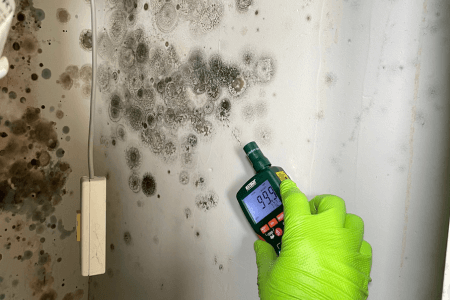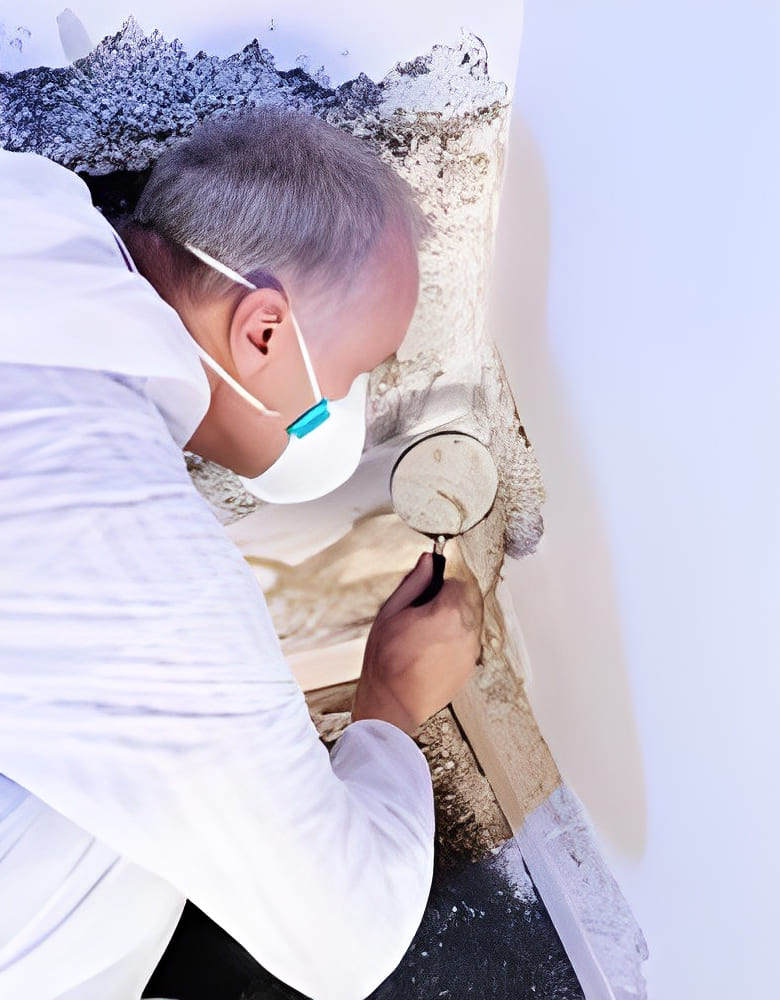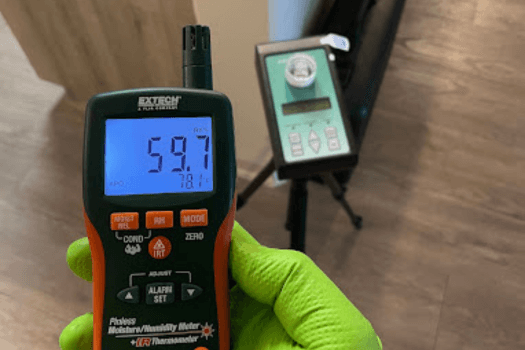Mold. Just hearing the word is enough to make most homeowners and renters cringe. Whether it’s a musty smell in the basement or a suspicious black spot creeping up a wall, mold is a problem you can’t ignore. But once you’ve spotted the issue, one big question often comes up: Who pays for mold inspections?
At Howard Environmental, we understand that mold can be stressful—financially, emotionally, and even physically. The good news? We’re here to make things a little less complicated. This guide will break down who’s responsible for paying for a mold inspection in different scenarios, so you know what to expect and how to navigate the situation.
The Why and How of Mold Inspections: A Quick Overview

Before we dive into who pays, let’s talk about what a mold inspection actually is and why it’s so important.
A mold inspection is a professional assessment of your property to determine whether mold is present, how widespread it is, and what’s causing it. At Howard Environmental, our inspections go beyond just looking for visible mold. We use tools like moisture meters and air samplers to uncover hidden mold and identify problem areas.
Why is this important? Well, ignoring mold won’t make it go away. It can spread quickly, damage your property, and even lead to health issues like allergies or respiratory problems. A thorough mold inspection ensures you know exactly what you’re dealing with—and how to fix it.
Homeowners and Mold: When It’s Your Responsibility
If you’re a homeowner and you suspect mold in your property, the responsibility for the inspection usually falls on you. After all, it’s your home, and addressing potential mold problems is part of maintaining it.
Here are a few common situations where you’d be responsible for the cost:
- After a water leak or flood: Mold thrives in moist environments. If you’ve recently had water damage, it’s a good idea to get an inspection.
- Selling your home: If a buyer requests a mold inspection as part of their due diligence, you might need to cover the cost to keep the sale moving smoothly.
Pro Tip: Regular home maintenance can help you avoid costly surprises. Check for leaks under sinks, around windows, and in your attic or basement. A little prevention goes a long way.
Mold and Real Estate: Buyers, Sellers, and Cost Responsibility

If you’re buying or selling a home, mold inspections can be a bit of a gray area. Who pays often depends on the specifics of the deal and the negotiation between both parties.
- When Sellers Pay:
Sellers might choose to cover the inspection cost to make their property more attractive to buyers. For example, if you’re selling a home in Austin’s competitive market, offering to handle the inspection could give you an edge. - When Buyers Pay:
Buyers may opt to pay for the inspection themselves to ensure an unbiased assessment. After all, mold can be a dealbreaker for many, and a buyer might prefer to choose their own trusted inspector.
Our Advice: If you’re involved in a real estate transaction, clear communication is key. Discuss inspection costs upfront and include agreements in your contract to avoid misunderstandings.
Renters’ Rights and Responsibilities for Mold Inspections
For tenants and landlords, figuring out who pays for a mold inspection can sometimes feel like navigating a maze. Here’s the general rule:
- When Landlords Pay:
Landlords are typically responsible if the mold is caused by structural issues, like a leaking roof or plumbing. After all, it’s their job to maintain a safe and habitable property. - When Tenants Pay:
Tenants might need to cover the cost if their actions contributed to the mold problem. For example, failing to ventilate a bathroom after steamy showers or neglecting to report a small leak that got worse over time.
If you’re a tenant, don’t wait to report mold concerns to your landlord. Document the issue with photos and communicate in writing to protect your rights. And landlords—be proactive about addressing mold complaints. It’s not just about keeping tenants happy; it’s about protecting your property’s value.
Will Your Insurance Pay for a Mold Inspection?
Insurance coverage for mold inspections is a bit of a mixed bag. It often depends on what caused the mold in the first place.
- Covered by Insurance:
If the mold resulted from a sudden and accidental event, like a burst pipe or storm damage, your homeowner’s or renter’s insurance might cover the inspection and remediation costs. - Not Covered by Insurance:
If the mold is due to neglect or long-term issues (e.g., you didn’t fix that leaky faucet for months), insurance companies typically won’t foot the bill.
Pro Tip: Check your insurance policy or call your provider to see what’s covered. Knowing your policy details can save you from unexpected expenses.
Mold Inspection Stalemates: What to Do When No One Takes Responsibility
Sometimes, figuring out who pays for a mold inspection isn’t so straightforward. Maybe a tenant and landlord can’t agree on who’s responsible, or a buyer and seller are at odds during a real estate transaction.
If you find yourself in a stalemate, here are some steps to take:
- Refer to Contracts or Lease Agreements:
Check the fine print to see if mold inspections or related issues are addressed. - Negotiate:
In many cases, a compromise can be reached. For example, splitting the cost of the inspection might be a fair solution. - Seek Professional Advice:
Sometimes, consulting a property lawyer or mediator can help resolve disputes.
At Howard Environmental, we’re happy to provide impartial mold inspections. Whether you’re a tenant, landlord, buyer, or seller, you can trust us to deliver unbiased results.
Read more from the Texas Attorney General about Mold Remediation policy.
Why Choose Howard Environmental for Your Mold Inspection?
At Howard Environmental, we take pride in making mold inspections simple and stress-free. Here’s why we’re the go-to choice for homeowners, renters, and property managers across Central Texas:
- Local Expertise: We understand the unique challenges of mold in our region, whether you’re in Austin, Georgetown, or Cedar Park.
- Unbiased Assessments: Since we don’t offer remediation services, our inspections are 100% focused on giving you accurate, honest results.
- Advanced Tools: From moisture meters to air sampling, we use state-of-the-art equipment to detect mold in even the hardest-to-reach places.
When it comes to mold, knowledge is power. Let us help you take control of the situation.
Who Pays for Mold Inspection? It’s Case by Case
At the end of the day, who pays for a mold inspection depends on the situation. Homeowners, landlords, buyers, and sellers all have different responsibilities, but one thing is certain: ignoring a mold problem will only make things worse.
If you’re facing mold concerns, don’t wait to take action. Contact Howard Environmental today to schedule a thorough, unbiased mold inspection. We’ll help you understand what’s happening, what’s causing it, and what steps to take next.
Because when it comes to protecting your home, your health, and your peace of mind, you deserve the best—and that’s exactly what we’re here to provide.
Keep Reading:Understanding Mold Inspection Cost: What Factors Affect Price?

